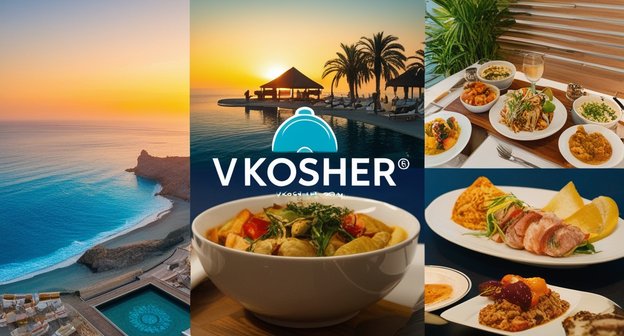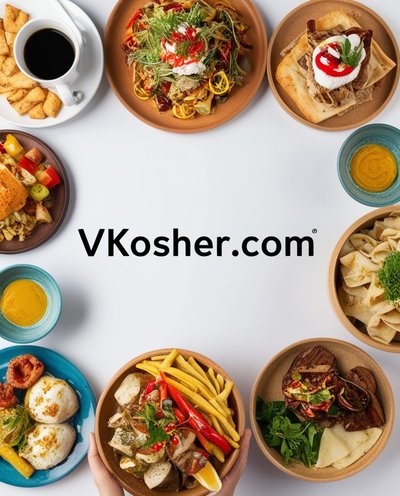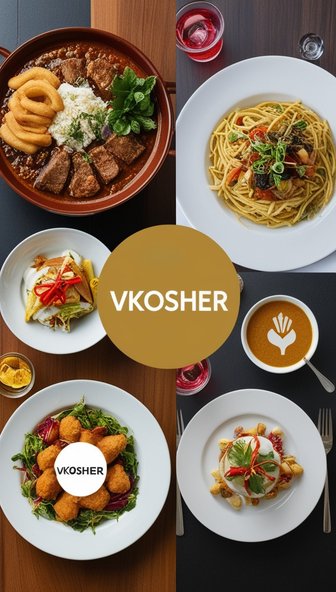Kosher Purim: Celebrating with Tradition and Integrity
Purim is one of the most joyous and festive holidays in the Jewish calendar, marked by the telling of the story of Esther, festive meals, charity, and an outpouring of gratitude and celebration. Central to this holiday, as with many Jewish holidays, is the adherence to kosher laws, which govern the preparation and consumption of food. For those observing Purim, maintaining a kosher lifestyle during the celebrations is not only a matter of religious observance but also a way to honor the traditions and values that have been passed down through generations.
The Significance of Purim
Purim commemorates the salvation of the Jewish people from a plot to annihilate them, as recorded in the Book of Esther. The story tells of how Queen Esther and her cousin Mordechai thwarted the plans of the wicked Haman, who sought to destroy the Jewish community in ancient Persia. The day is celebrated with a variety of rituals and customs, including the reading of the Megillah (the Scroll of Esther), giving gifts of food to friends (mishloach manot), giving charity to the poor (matanot la'evyonim), and enjoying a festive meal (seudah).
The holiday is a reminder of the resilience of the Jewish people and the importance of standing up against oppression and injustice. The customs and traditions associated with Purim, including the emphasis on joy, community, and generosity, reflect these values.
Kosher Laws and Their Importance
Kosher laws, or kashrut, are a set of dietary guidelines derived from the Torah, which dictate what foods are permissible for consumption and how they must be prepared. These laws are fundamental to Jewish life and observance, shaping not only what is eaten but also how food is handled and served.
During Purim, maintaining a kosher diet is an essential part of the celebration. Whether preparing food at home, hosting a Purim seudah, or sending mishloach manot, observing kosher laws ensures that the holiday is celebrated in a way that is consistent with Jewish law and tradition.
Kosher Purim Seudah
The Purim seudah, or festive meal, is one of the highlights of the holiday. It is a time for family and friends to gather, share food, and celebrate the deliverance of the Jewish people. For those who keep kosher, the preparation of the seudah requires careful attention to the rules of kashrut.
A traditional Purim seudah might include a variety of kosher dishes, such as challah, roasted meats, fish, vegetables, and desserts. Wine and other beverages are also part of the celebration, and these too must be kosher. Ensuring that all ingredients are kosher, that meat and dairy are not mixed, and that utensils and cookware used are properly koshered, are all vital aspects of preparing the meal.
For those who may be new to kosher cooking or who are hosting guests with varying levels of observance, there are many resources available to help ensure that the seudah is both delicious and kosher. Consulting with a rabbi or a kosher certification agency can provide guidance on everything from selecting kosher wines to ensuring that your kitchen is properly prepared.
Mishloach Manot and Kosher Gifts
Another central custom of Purim is the giving of mishloach manot, gifts of food to friends and family. These gifts typically include at least two different types of food, and for those who keep kosher, it is important that the items included are kosher.
When preparing or purchasing mishloach manot, it is important to check that all packaged foods are marked with a reliable kosher certification. This includes baked goods, candies, and other treats that are often included in these gift baskets. For homemade items, such as cakes or cookies, the same rules of kashrut apply as with the preparation of the Purim seudah.
Mishloach manot can also be an opportunity to share the joy of Purim with others while respecting their dietary needs. When giving to someone who keeps kosher, it is a thoughtful gesture to ensure that the gift is entirely kosher, from the food items to any packaging materials used.
Kosher Charity: Matanot La'evyonim
Giving to those in need, known as matanot la'evyonim, is a key component of Purim. The mitzvah of giving charity is emphasized during this holiday, and many take the opportunity to ensure that their charitable contributions are both generous and kosher.
For those who keep kosher, this can mean giving money to organizations that provide kosher food to the needy or directly donating kosher food items. This ensures that the recipients can enjoy a festive Purim meal that aligns with their religious practices.
Many Jewish communities organize collections and distributions of matanot la'evyonim, making it easier for individuals to participate in this important mitzvah. Whether through a community organization, synagogue, or personal donation, the act of giving on Purim is a powerful expression of the values of compassion and generosity.
Kosher Challenges and Solutions
Celebrating Purim in a kosher manner can present certain challenges, especially for those who are new to kosher observance or who live in areas with limited access to kosher products. However, with planning and resources, these challenges can be overcome.
One common challenge is finding kosher ingredients for traditional Purim dishes, especially if one is living in a small community or a region without a large kosher market. In such cases, online kosher retailers can be a valuable resource, offering a wide range of kosher-certified products that can be shipped directly to your door.
Another challenge may be ensuring that all aspects of the Purim celebration, from the seudah to mishloach manot, adhere to kosher standards. For those who are not familiar with the intricacies of kashrut, consulting with a knowledgeable person, such as a rabbi or kosher supervisor, can provide valuable guidance.
Additionally, hosting or attending a Purim celebration where not all participants keep kosher can require careful coordination to ensure that everyone’s needs are met. Clear communication and a commitment to respect each other's practices can help create a joyous and inclusive celebration.
Conclusion
Kosher observance during Purim is about more than just following dietary laws; it is a way to connect with the deep spiritual and cultural traditions of Judaism. By preparing a kosher Purim seudah, giving kosher mishloach manot, and ensuring that charitable giving is kosher, participants can honor the rich history and meaning of the holiday.
For those who keep kosher, Purim is an opportunity to celebrate with joy and integrity, knowing that the foods they share and enjoy are in keeping with the values and laws that have guided Jewish life for centuries. With careful planning and a commitment to tradition, a kosher Purim can be a truly meaningful and festive experience.
Purim is one of the most joyous and festive holidays in the Jewish calendar, marked by the telling of the story of Esther, festive meals, charity, and an outpouring of gratitude and celebration. Central to this holiday, as with many Jewish holidays, is the adherence to kosher laws, which govern the preparation and consumption of food. For those observing Purim, maintaining a kosher lifestyle during the celebrations is not only a matter of religious observance but also a way to honor the traditions and values that have been passed down through generations.
The Significance of Purim
Purim commemorates the salvation of the Jewish people from a plot to annihilate them, as recorded in the Book of Esther. The story tells of how Queen Esther and her cousin Mordechai thwarted the plans of the wicked Haman, who sought to destroy the Jewish community in ancient Persia. The day is celebrated with a variety of rituals and customs, including the reading of the Megillah (the Scroll of Esther), giving gifts of food to friends (mishloach manot), giving charity to the poor (matanot la'evyonim), and enjoying a festive meal (seudah).
The holiday is a reminder of the resilience of the Jewish people and the importance of standing up against oppression and injustice. The customs and traditions associated with Purim, including the emphasis on joy, community, and generosity, reflect these values.
Kosher Laws and Their Importance
Kosher laws, or kashrut, are a set of dietary guidelines derived from the Torah, which dictate what foods are permissible for consumption and how they must be prepared. These laws are fundamental to Jewish life and observance, shaping not only what is eaten but also how food is handled and served.
During Purim, maintaining a kosher diet is an essential part of the celebration. Whether preparing food at home, hosting a Purim seudah, or sending mishloach manot, observing kosher laws ensures that the holiday is celebrated in a way that is consistent with Jewish law and tradition.
Kosher Purim Seudah
The Purim seudah, or festive meal, is one of the highlights of the holiday. It is a time for family and friends to gather, share food, and celebrate the deliverance of the Jewish people. For those who keep kosher, the preparation of the seudah requires careful attention to the rules of kashrut.
A traditional Purim seudah might include a variety of kosher dishes, such as challah, roasted meats, fish, vegetables, and desserts. Wine and other beverages are also part of the celebration, and these too must be kosher. Ensuring that all ingredients are kosher, that meat and dairy are not mixed, and that utensils and cookware used are properly koshered, are all vital aspects of preparing the meal.
For those who may be new to kosher cooking or who are hosting guests with varying levels of observance, there are many resources available to help ensure that the seudah is both delicious and kosher. Consulting with a rabbi or a kosher certification agency can provide guidance on everything from selecting kosher wines to ensuring that your kitchen is properly prepared.
Mishloach Manot and Kosher Gifts
Another central custom of Purim is the giving of mishloach manot, gifts of food to friends and family. These gifts typically include at least two different types of food, and for those who keep kosher, it is important that the items included are kosher.
When preparing or purchasing mishloach manot, it is important to check that all packaged foods are marked with a reliable kosher certification. This includes baked goods, candies, and other treats that are often included in these gift baskets. For homemade items, such as cakes or cookies, the same rules of kashrut apply as with the preparation of the Purim seudah.
Mishloach manot can also be an opportunity to share the joy of Purim with others while respecting their dietary needs. When giving to someone who keeps kosher, it is a thoughtful gesture to ensure that the gift is entirely kosher, from the food items to any packaging materials used.
Kosher Charity: Matanot La'evyonim
Giving to those in need, known as matanot la'evyonim, is a key component of Purim. The mitzvah of giving charity is emphasized during this holiday, and many take the opportunity to ensure that their charitable contributions are both generous and kosher.
For those who keep kosher, this can mean giving money to organizations that provide kosher food to the needy or directly donating kosher food items. This ensures that the recipients can enjoy a festive Purim meal that aligns with their religious practices.
Many Jewish communities organize collections and distributions of matanot la'evyonim, making it easier for individuals to participate in this important mitzvah. Whether through a community organization, synagogue, or personal donation, the act of giving on Purim is a powerful expression of the values of compassion and generosity.
Kosher Challenges and Solutions
Celebrating Purim in a kosher manner can present certain challenges, especially for those who are new to kosher observance or who live in areas with limited access to kosher products. However, with planning and resources, these challenges can be overcome.
One common challenge is finding kosher ingredients for traditional Purim dishes, especially if one is living in a small community or a region without a large kosher market. In such cases, online kosher retailers can be a valuable resource, offering a wide range of kosher-certified products that can be shipped directly to your door.
Another challenge may be ensuring that all aspects of the Purim celebration, from the seudah to mishloach manot, adhere to kosher standards. For those who are not familiar with the intricacies of kashrut, consulting with a knowledgeable person, such as a rabbi or kosher supervisor, can provide valuable guidance.
Additionally, hosting or attending a Purim celebration where not all participants keep kosher can require careful coordination to ensure that everyone’s needs are met. Clear communication and a commitment to respect each other's practices can help create a joyous and inclusive celebration.
Conclusion
Kosher observance during Purim is about more than just following dietary laws; it is a way to connect with the deep spiritual and cultural traditions of Judaism. By preparing a kosher Purim seudah, giving kosher mishloach manot, and ensuring that charitable giving is kosher, participants can honor the rich history and meaning of the holiday.
For those who keep kosher, Purim is an opportunity to celebrate with joy and integrity, knowing that the foods they share and enjoy are in keeping with the values and laws that have guided Jewish life for centuries. With careful planning and a commitment to tradition, a kosher Purim can be a truly meaningful and festive experience.




